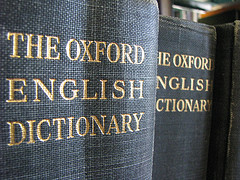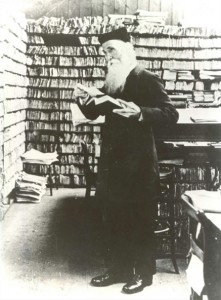 Depression, murder, insanity….not the first words that come to mind when contemplating lexicography. Nevertheless, such is the history of English dictionaries. The stories of Samuel Johnson, James Murray and W.C. Minor make for a fascinating historical read.
Depression, murder, insanity….not the first words that come to mind when contemplating lexicography. Nevertheless, such is the history of English dictionaries. The stories of Samuel Johnson, James Murray and W.C. Minor make for a fascinating historical read.
Dictionaries in their broadest understanding go back as far as 2300 BC with Sumerian-Akkadian wordlists from the Akkadian Empire. Throughout their history, dictionaries have taken a number of different forms, including topical word-lists, bilingual or multilingual corrolaries, and synonym-based lists. In English, the first dictionary that took a form readily recognizable as a modern dictionary was written by Robert Cawdrey. Cawdrey’s Table Alphabeticall, published in 1604, stood for 150 years as the best example of English lexicography. Scholars, however, called for something new.

Acknowledging the need for a truly new dictionary, a collection of London booksellers hired Samuel Johnson to tackle the challenge. Working primarily alone for nine years, battling depression, fatigue, and a litany of other ailments, Johnson finally succeeded in creating what many believe to be his masterpiece, A Dictionary of the English Language. Johnson’s achievement, parodied by Rowan Atkinson in Blackadder, was extraordinary. His dictionary, though at some times incorrect, and at others strongly opinionated, became a monument in the history of the English language.

Whereas Cawdrey reigned supreme for 150 years, Johnson’s work maintained its authority for over 170 years, until the publication of what would become to be known as the Oxford English Dictionary. Beginning as early as 1857, a team of scholars began the work of crafting what would become one of the most definitive works of lexicography in the world. After much planning and research, James Murray took the reins as editor in the late 1870s. The aim of the Oxford English Dictionary was to record not only modern vocabulary, but also archaic, technical, and in some cases dialectical usages, along with passages of first use, etymologies, and other significant details. To put it simply, the OED was to become the most intimate biography of the English language to date. To achieve this end, Murray and the team of editors knew that no one man or team could accomplish this alone; they needed wide assistance from the rest of the world. One of the most prolific contributors, mentioned above, was W.C. Minor, surgeon, U.S. Civil War veteran, as well as murderer and patient at an English insane asylum. Minor contributed thousands of quotations that would serve to illustrate usages of words the editors could not find alone.
The Sheridan Libraries have access to many general and technical dictionaries. Discover more of them here.
